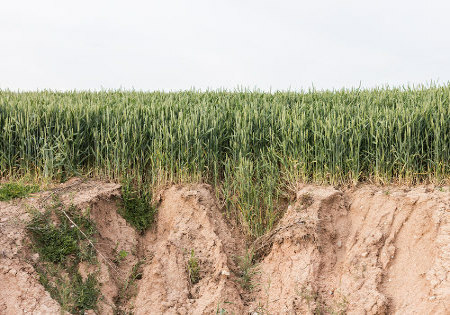intensive agriculture it is a productive system characterized by the intensive use of new techniques and technologies to increase agricultural productivity. It is a agrosystem typical of developed countries and, when present in underdeveloped countries, production is often destined for export.
Intensive agriculture and environment
It is a fact that Intensive Agriculture, through the resources used by it, promoted a real revolution in increasing productivity and reducing time to achieve results in agriculture. However, this advance was not without cost to natural resources. There are several aspects of this system that provoke criticism from environmentalists.
Let's look at some of the environmental impacts caused by intensive agriculture:
An area that will be cultivated for the first time will already suffer the first impact, which is the removal of the original vegetation cover. O logging of areas for cultivation is essential for intensive agriculture, as the use of machinery is not compatible with planting integrated with the original vegetation;
Intensive agriculture, as it is mechanized, is a modality that uses a lot of energy and fossil fuels, like oil diesel. The use of agricultural implements and machines, such as mechanical plows, planters, sprayers and harvesters, contributes to the burning of these fuels and the consequent air pollution;
soil pollution and of the Waterby the use of agricultural pesticides, the so-called pesticides, which are used to combat pests that affect crops. However, these chemicals do not only reach the cultivated field. Often, when it rains or when the land is irrigated, pesticides are carried into the deeper layers of the soil and into fresh water sources;

Soil and water pollution and the decline in biodiversity are consequences of the use of pesticides
In addition to pollution, the indiscriminate use of pesticides can contribute to decrease in biodiversity, because these pesticides, often, not only affect pests, but also organisms (animals and plants) that are within the range of application of the pesticide;
The use of Genetically Modified Organisms (GMOs), the so-called transgenics, is also the target of complaints by environmentalists. One of the disputes refers to the loss caused to vegetation and crops neighboring the place, which received immunity to any infestation. As pests (fungi, bacteria, insects) cannot reach the transgenic crop, they migrate to neighboring crops or vegetation;

According to environmentalists, the use of transgenic seeds can have negative impacts on the environment
Total weakening of the ground by the uninterrupted use and excessive use of corrective minerals and pesticides, which can salinize it. This occurrence can permanently damage the soil, making it unfit to receive any kind of cultivation;
THE irrigation it is responsible for the use of much of the drinking water. More than half of the water consumed is used to irrigate cultivated fields. In a time like the present one where lack of water for consumption in different places, this information in itself is already an important environmental concern;
The removal of the original vegetation cover for planting (deforestation) together with irrigation and the use of corrective minerals is the ideal combination for the emergence of soil erosions. Even during the period when the soil is being planted, erosion can occur, when water drainage is not well done, which can even compromise production.

The techniques used in intensive agriculture can cause irreparable damage to the soil
At the same time that there are protests and criticisms of the production model of intensive agriculture, many researchers and environmentalists have proposed agricultural production alternatives that do not cause so many impacts to the environment environment. Some of the solutions pointed out are the water reuse in agriculture, the use of fertilizers and biological pesticides and the organic agriculture, which eliminates the use of chemicals in its production. These and other initiatives bring hope of agricultural production that has a more peaceful coexistence with the environment.
By Amarolina Ribeiro
Graduated in Geography
Source: Brazil School - https://brasilescola.uol.com.br/geografia/agricultura-intensiva-meio-ambiente.htm

